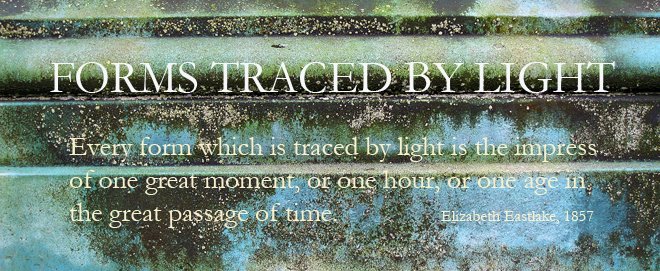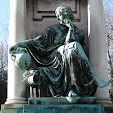
Maybe it was the light, but the railway bridge over George Street - as one walks towards it from the Rutgers campus - was looking stunningly beautiful this afternoon - this photo doesn't bring out well enough the contrast of the orange paint with the white and black stripes under the bridge itself. I'd been spending a couple of hours in the Zimmerli art gallery - in the first instance, to see a wonderful show by
Rachel Perry Welty, whose work celebrates/records the everyday in a way that's both obsessive (in an endearing kind of way), and that also makes a more polemical point about
stuff - the amount of it that we consume, throw away, give away, or just take for granted. To this last end, I'd recommend the pieces that show her disappearing behind countless price tags, or those little stickers that one finds on fruit or vegetables in the supermarket. My favorite piece was her
Deaccession Project - a daily documentation (since October 5th 2005) of an object that she threw out, or gave away, or gave to Goodwill, that day, with an annotation about what it was - whether it belonged to herself, or her husband, or son - and why it's surplus, or redundant, or doesn't fit, or is too worn, or is stale, or broken, or downright unidentifiable. As one of the short written commentaries in the spiral bound catalog/artist's book that accompanies the show puts it, "her vast, obsessively updated 5+ year project indicates that while she may be giving stuff away, she really can't let it go." Those words "obsessively updated" give me pause for thought - is it "obsessive" to update on a daily basis? As you might imagine, the project is one after my own heart (but one could hardly imitate it, even if one wanted to - the beauty lies in its conception).
After Welty's show, I wandered around the American section - in part I wanted to see the little "Fluxus at Rutgers" installation - and found - yes! - a picture by John Jesse Barker, View of the New Brunswick Railroad Bridge, c. 1856. What a beautiful and tranquil piece of NJ this once was. That's Highland Park - although I'm not sure that at the time, it knew that it was - on the left, and on the right - where J&J was to flourish - it's either a wallpaper factory or a rubber factory, I think, judging by a quick bit of on-line history digging. But that last supposition is unchecked.


















































